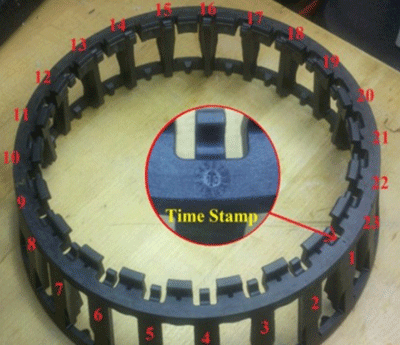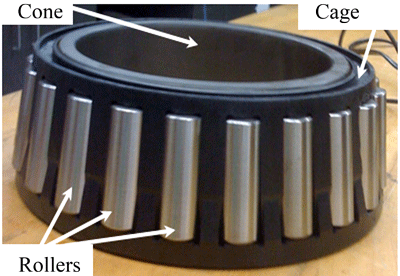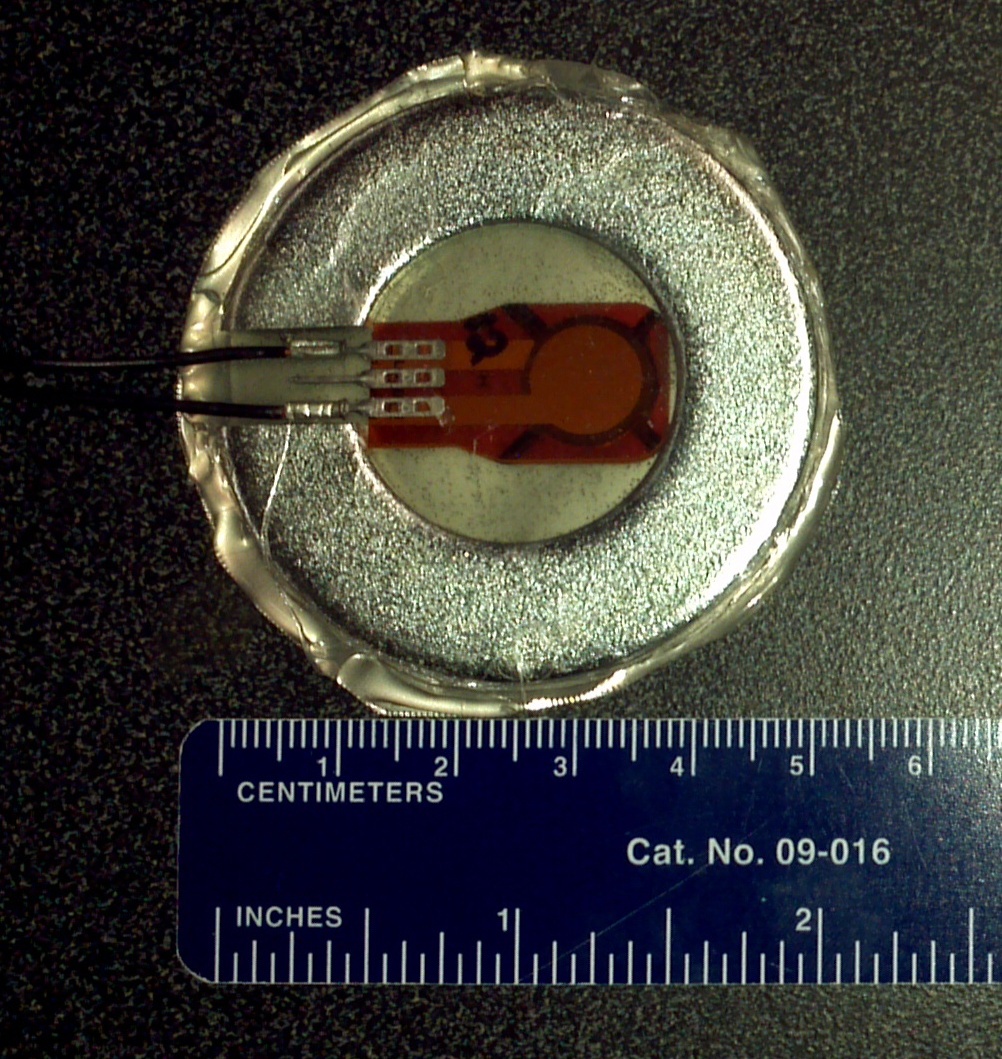Polymer and Materials Research
Material testing and characterization conducted by the UTRGV Railroad Research Group has resulted in changes implemented by bearing manufacturers. In particular, extensive work has been performed pertaining to the mechanical and thermal characterization of polyamide cages used in bearing assemblies. The acquired experimental results were a factor in improving the performance of this bearing component.


Polyamide (Polymer) Cage Cone Assembly
The UTRGV Railroad Research Group has broad experience in mechanical testing of components, failure analysis, and characterization of materials to predict long term performance. These capabilities are applicable to a number of areas in rail safety. Approximately 10% of accidents recorded by the FRA in 2012* were related to failure of components. UTRGV has capabilities, expertise, and experience in failure analysis of mechanical components, adhesives, coatings, and fasteners in a number of industrial areas. The lab is particularly well-equipped to evaluate failures in polymer and polymeric composite parts with the availability of thermal analysis tools and access to other analytical tools through the departments of Chemistry and Physics & Geology. The tremendous flexibility of thermal analysis tools is currently being demonstrated in a long-term study of lubricating grease breakdown. The differential scanning calorimeter (DSC) permits rapid assessment of residual lubricant life by measuring remaining antioxidant capacity in a sample. The research group at UTRGV has shown that a standard DSC cell can provide consistent measurement of that life, and is currently engaged in an extended study of operating condition effects on lubricant life with a goal of developing a forensic tool for assessing the role of lubricants in bearing failure.
The largest category of reportable rail safety incidents is operator error or human factor errors. Innovations in systems and equipment to reduce these incidents have potential for the greatest improvement in railroad safety. Such systems will require functional testing as well as validation of long term durability. Previous industrial projects performed in the laboratory have ranged from fatigue testing of design prototypes to impact testing of new material formulations. The UTRGV Railroad Research Group has extensive experience with the description and testing of polyamide composite components to include microstructural analysis, accelerated testing of creep behavior, impact resistance, and maintenance of geometric tolerances with long-term thermal cycling. More recent work has been with thermoset and thermoplastic elastomers and has included thermal, mechanical, and electrical testing of a range of elastomeric materials in the process of developing electrically conductive systems for rail applications. As plastics and composites play a greater role in rail safety, such characterization will be increasingly critical.


The design and development of new systems often require basic characterization of materials in conditions for which manufacturers have little or no data. The UTRGV Railroad Research Group has provided such missing information in projects ranging from post-yield behavior of various grades of stainless steel sheet to long-term creep response of a large number of candidate polyamide composite materials. The broad range of available tools permits rapid development of needed datasets for design purposes.
Finally, it is increasingly necessary for design engineers to integrate material selection into the earliest stages of the design process. Broad experience in materials and particular familiarity with polymeric systems enables us to provide input in the design process, perform small scale testing of early prototypes, and qualification testing of material suppliers.